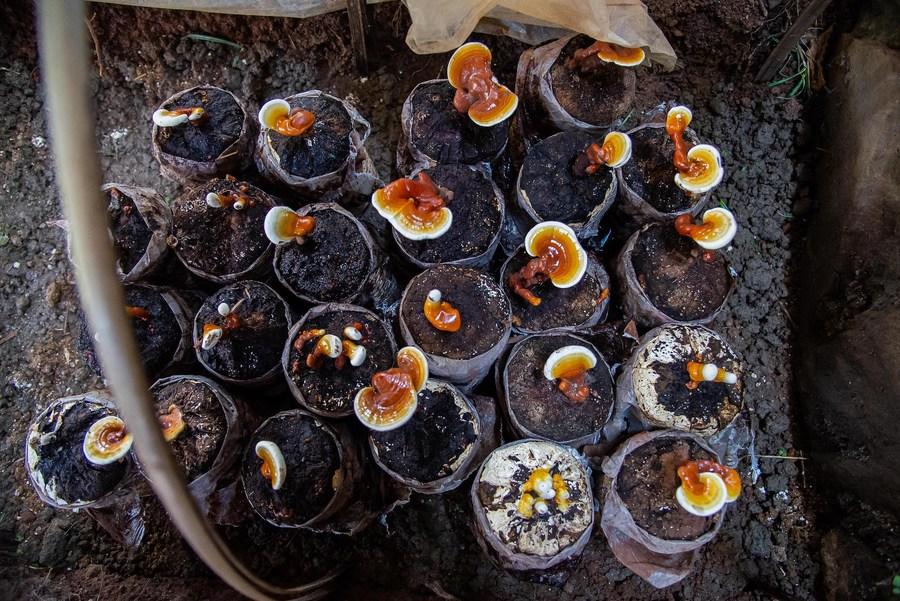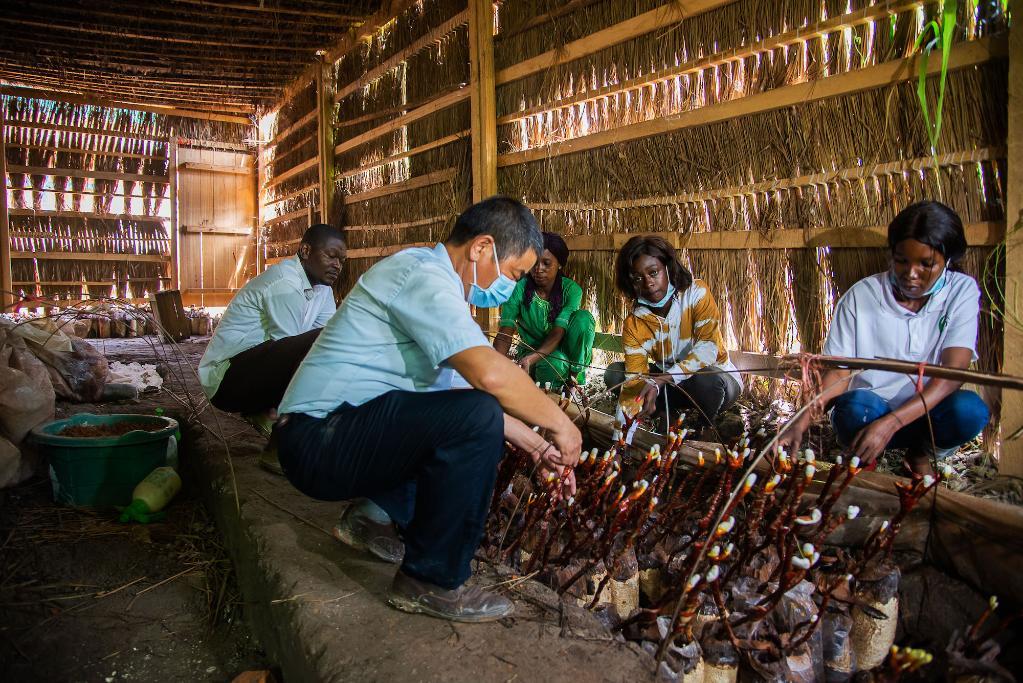
Photo taken on May 31, 2022, shows fungi cultivated by a non-governmental organization called "International NGO Centrolive" in Bangui, Central African Republic. (Xinhua/Luo Yu)
The Chinese Juncao technology holds the key potential to contribute to the achievement of the United Nations' Sustainable Development Goals (SDGs), a UN official told Xinhua in a recent interview.
KIGALI, Feb. 26 (Xinhua) -- The Chinese Juncao technology holds the key potential to contribute to the achievement of the United Nations' Sustainable Development Goals (SDGs), a UN official told Xinhua in a recent interview.
Amson Sibanda from the United Nations Department of Economic and Social Affairs (UNDESA) said that Juncao technology is an effective tool and a simple technology that can be used by everyone, even somebody with limited knowledge of education.
Sibanda spoke with Xinhua at the just concluded African regional workshop on applications of Juncao technology and its contribution to the achievement of sustainable agriculture and the sustainable development goals in Africa in the Rwandan capital of Kigali.
"The technology has a big potential to contribute to the achievement of sustainable development goals," said Sibanda, who currently serves as the chief of the National Strategies and Capacity Building Branch in the Division for Sustainable Development Goals of UNDESA, adding that the reason why UNDESA is promoting the technology is because of the 2030 agenda of SDGs.
"We believe that the Juncao technology is one of the technological solutions that can be transferred through south-south cooperation to help those countries that want to address the issues of food insecurity, environment challenges and poverty alleviation," he said.

A Chinese expert cultivates fungi with local people in Bangui, Central African Republic, on June 1, 2022. (Xinhua/Luo Yu)
He explained that growing mushrooms using Juncao technology will address food insecurity, generate household income and create employment opportunities for women and youth, calling on African countries and beyond to adopt and implement the technology in the quest for promoting economic development.
"We have seen here in Rwanda how young people have embraced Juncao technology. These young people are very empowered and have big dreams. We wish to see more people across Africa get to know Juncao technology and its benefits," Sibanda said, noting that Juncao technology can protect the environment and address climate change challenges through soil erosion control as well as using Juncao grass to feed livestock.
The knowledge of Juncao technology in producing mushrooms and the use of Juncao grass as a forage for livestock are very important in promoting economic development, said Asimwe L. Rwiguza, director for Grazing Land and Animal Feed Resources in the Tanzanian Ministry of Livestock and Fisheries.
"Juncao technology will help us address the challenge of conflict between crop producers and livestock herders in Tanzania because we are going to increase forage production for livestock using the technology," Rwiguza said, explaining that the conflict is a result of the livestock harming farmers' crop fields due to lack of sufficient fodder.
"We have seen here in Rwanda mushroom products that have been produced using Juncao technology. We have gained that knowledge and we are going to practice it in our country," said Rwiguza.